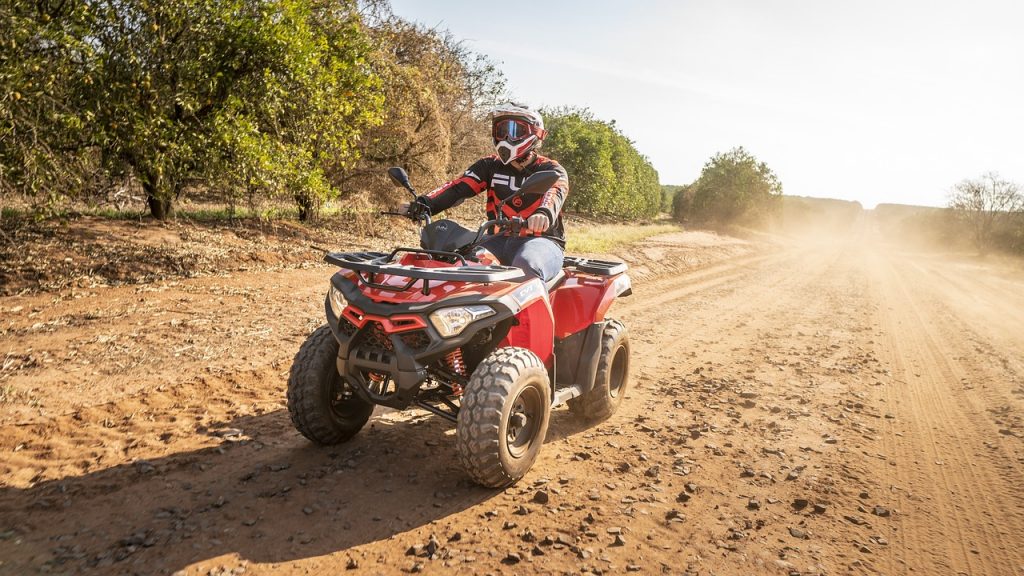Turning your UTV into a street-legal machine is more than a weekend project — it’s your ticket to freedom. Whether you’re commuting from camp or cruising your neighborhood, riding your UTV on the road opens up a whole new world. But to keep things fun (and fine-free), you need to make sure you’re doing it by the book.
UTV Road Ready: What That Means
Let’s start with the basics. When we say UTV road-ready, we’re talking about making your machine fit for public streets — not just trails or private land.
That means adding:
- DOT-approved tires
- Headlights with both high and low beams
- Turn signals and brake lights
- Rearview and side mirrors
- A working horn
- A windshield (sometimes) and wipers
- A license plate light and mount
Each of these items plays a role in visibility and safety — both for you and other drivers. And yes, this is required by law in most states. In Montana, for instance, quadricycles (which many UTVs fall under) must meet specific road equipment standards, according to the Montana Legislature, MCA § 61-8-377.
Recreational Vehicle Registration: Your Street Pass
Once your UTV is outfitted with the right gear, the next step is getting it recognized with recreational vehicle registration. This isn’t just a formality — it’s what turns your UTV into a vehicle that can be driven on the road without raising eyebrows (or getting tickets).
Registration through a UTV-friendly state like Montana gives you:
- A permanent plate (yes, really — it lasts forever for many UTVs)
- A clean title in your name or LLC
- Freedom from emissions testing and yearly inspections
It’s a smooth process when you go through the right channels.
UTV Registration: Where People Usually Get Stuck
Here’s the truth: most people hit a wall when they walk into their local DMV asking for a street plate for their UTV. That’s because many states don’t allow it — or make the process nearly impossible.
What usually goes wrong?
- Missing safety equipment
- Lack of VIN inspection
- Wrong title type (off-road only)
The good news? You don’t have to fight that battle. States like Montana offer a clearer path — and once registered there, you can usually drive in other states under reciprocity laws.
Off-Road Vehicle Registration vs. Street-Legal Conversion
It’s important to understand the difference. Off road vehicle registration is for trail use only. That’s what your dealer gave you when you bought the UTV. It’s not enough to get you on city roads.
A street-legal conversion upgrades that off-road status by:
- Meeting equipment standards
- Submitting the right forms
- Verifying VIN and title history
- Registering in a state that allows it
Once converted, you’re not just off-road capable — you’re road-legal.
More off-road riders are heading to the streets, but making a dirt bike or UTV street-legal takes more than a few upgrades. From understanding local laws to handling paperwork and installing DOT-compliant parts, this guide breaks down everything you need to know to get road-ready safely and compliant.

Thinking About Registering a Car Off Road? Here’s a Better Idea
We get it. Some folks try to register a car off road to dodge inspections, emissions, or taxes. But here’s the risk: if you get caught driving that car on public streets, you’re now in violation — and penalties can be steep.
The better option? Register it the right way, in a state that offers flexibility. You’ll stay insured, and headache-free.
Got Questions? Let’s Clear Them Up
We’ve helped thousands of people just like you get their UTVs on the road — and we hear the same questions over and over. Here are the answers you’re probably looking for:
Can I drive my UTV on public roads?
Yes — as long as it’s registered in a state that allows it and equipped with the required safety gear. Some states don’t allow it at all, but states like Montana do.
What if my title says “off-road only”?
No problem. That’s common. We help riders convert off-road titles into road-legal registrations every day by completing inspections and paperwork required by states like Montana.
Will I be able to get insurance?
Yes, you can insure your UTV once it’s street-legal. Most major insurers will write a policy. Just use your address and list the registration address as additional interest if using an LLC.
Do I have to go to the DMV?
Nope. If you’re registering through a remote-friendly state, everything can be done by mail or online. It’s surprisingly simple — no lines, no waiting rooms.
What if I get pulled over?
Stay calm and show your valid plate, registration, and insurance. If your paperwork is clean and your UTV is road-ready, you’re fine. Some officers might not be familiar with the laws — but the law is on your side when everything’s in order.
Don’t Just Ride — Ride Smart
Getting your UTV on the road compliant might feel overwhelming at first, but once you understand the rules and gear requirements, it’s a straightforward process. Whether you’re hitting a backroad, pulling into town for fuel, or heading out for the weekend — riding street-ready means riding worry-free.
Because adventure is a lot more fun when you’re not sweating a ticket.
Get started now and ride with confidence—on or off the trail.



